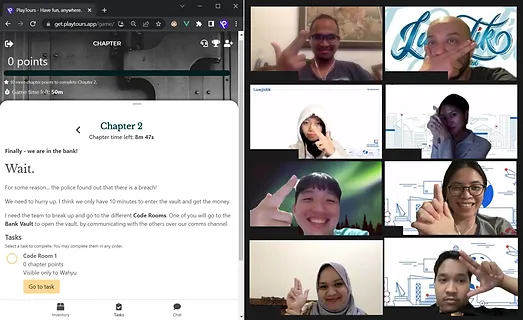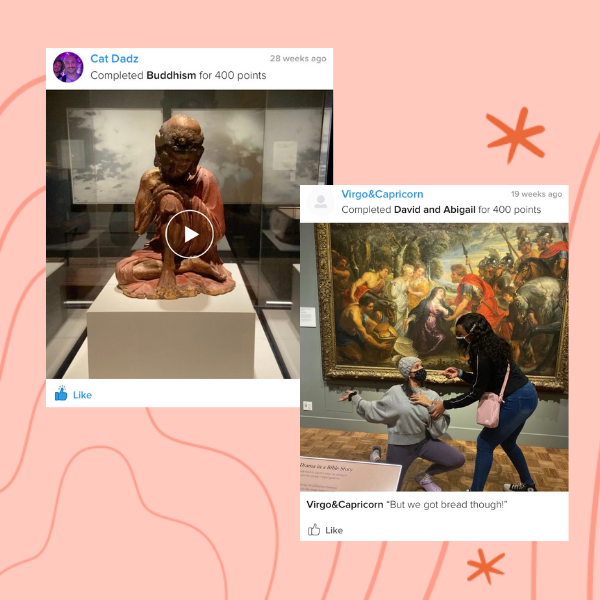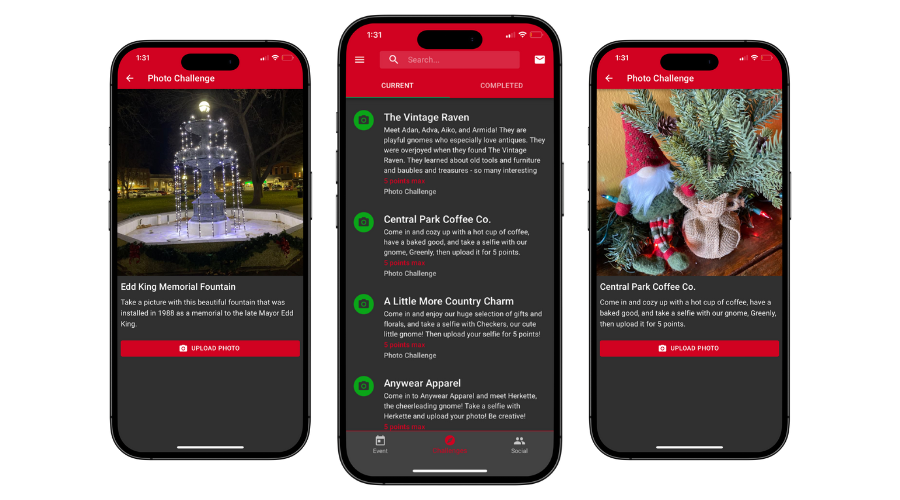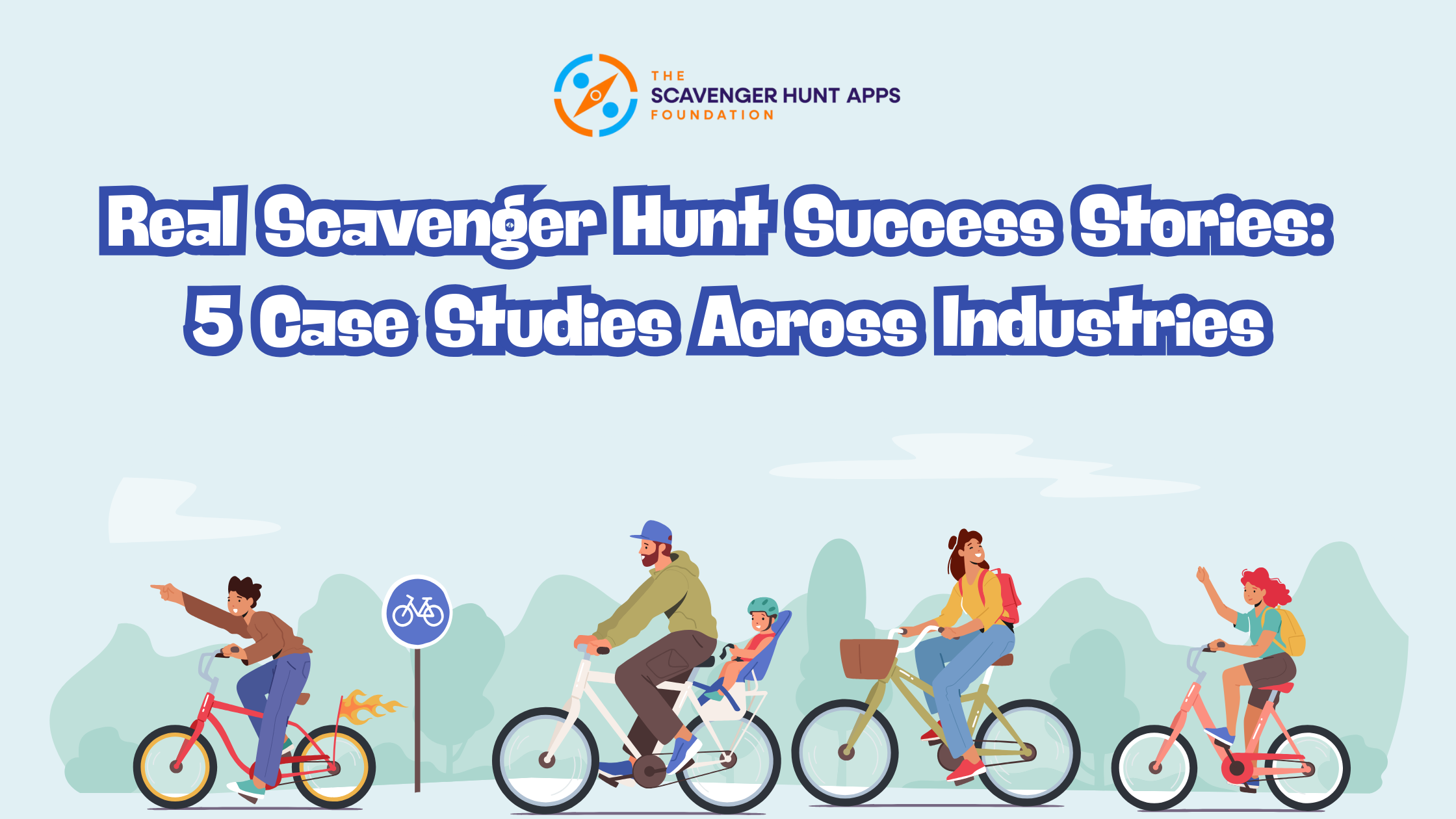Scavenger hunts are no longer confined to playgrounds and birthday parties. Today, they are a powerful form of experiential learning, engagement, and marketing across diverse industries. By weaving gamification into structured activities, organizations can capture attention, foster collaboration, and create memorable experiences. What makes scavenger hunts particularly versatile is the wide variety of digital platforms available; each app with its own strengths tailored to specific contexts.
Below, we explore five detailed case studies where different scavenger hunt apps were deployed successfully in unique industries. Each highlights the app used, the industry application, and the tangible outcomes achieved.
Case Study 1: Corporate Team Building with PlayTours
Large corporations often face the challenge of breaking down silos and encouraging genuine connections among employees. In one example, a global financial services firm used PlayTours to gamify its annual leadership summit. Over 300 employees, from interns to senior executives, were divided into cross-departmental teams and given a series of creative challenges spread across the conference center and nearby city landmarks. PlayTours helped transform the company’s offsite into one of the most engaging corporate team building activities, fostering cross-department collaboration and boosting morale.
Missions included photo uploads that showcased teamwork, trivia questions linked to the company’s values, and GPS-based check-ins at local cultural attractions. PlayTours’ platform allowed real-time tracking, so participants could see their progress compared to other teams, sparking healthy competition. Importantly, the app’s multilingual interface ensured inclusivity for participants from over 15 countries.

Impact: Post-event surveys revealed that 89% of participants felt more connected to colleagues outside their immediate departments. Managers also noticed stronger collaboration in cross-functional projects in the weeks following the summit. HR reported that engagement scores rose by 15% quarter-over-quarter, underscoring the lasting morale boost from this activity.
Case Study 2: Tourism & Museums with GooseChase
The Detroit Institute of Arts demonstrated how digital hunts can serve as innovative museum engagement strategies, encouraging visitors to interact more deeply with exhibits. Traditionally, the museum offered paper-based scavenger hunts for school groups and families. During the pandemic, the museum pivoted to a fully digital format using GooseChase, enabling guests to continue exploring the collection in a self-guided yet interactive way.
Visitors downloaded the GooseChase app and joined thematic hunts designed around specific exhibits. For example, one mission asked participants to find paintings that depicted myths, while another had them photograph sculptures with specific visual features. These missions were crafted to cater to different visitor types from casual browsers to art enthusiasts. Families appreciated silly, lighthearted tasks, while educators valued missions that promoted critical thinking.

Impact: More than 385 teams participated in the DIA hunts, generating hundreds of photo and answer submissions per mission. The museum observed longer dwell times per exhibit and higher repeat visitation. Teachers accompanying student groups reported that learners showed deeper retention of art concepts compared to previous visits. Even after in-person tours resumed, the museum retained GooseChase hunts as a permanent offering, illustrating their success in enriching visitor experiences.
Case Study 3: Student Orientation with Actionbound
Universities often struggle to help new students feel at home on large, complex campuses. The University of Hertfordshire’s Business School implemented Actionbound scavenger hunts as part of its orientation program to help incoming students transition smoothly.
Students formed small teams and used the Actionbound app to navigate campus, scanning QR codes, solving riddles, and completing multimedia challenges at key facilities such as lecture halls, libraries, and administrative offices. Actionbound’s interactive features ensured that students learned about university resources in a playful and memorable way, while also building friendships with peers. By gamifying campus tours, Actionbound positioned itself as one of the most effective tools for modern student orientation programs, helping students build confidence and social connections.
Impact: Surveys revealed that over 70% of participants felt more confident navigating the campus compared to previous cohorts. Orientation staff noticed fewer repetitive logistical questions, indicating students had retained practical knowledge from the hunt. Most importantly, students reported the activity helped them form early social connections, easing their transition into academic life.
Case Study 4: Holiday Downtown Engagement with Eventzee
Small towns often look for creative ways to bring their communities together while supporting local businesses during the holiday season. In Mt. Pleasant, Iowa, organizers partnered with Eventzee to launch a festive, app-based scavenger hunt called “Gnome Place Like Mt. Pleasant for the Holidays.” The event invited residents and visitors alike to explore downtown through a series of playful, holiday-themed challenges.
Participants used the Eventzee app to navigate a self-guided hunt featuring photo missions at local landmarks and storefronts. Families and individuals were tasked with snapping pictures alongside whimsical gnome figures, holiday displays, and seasonal decorations. The app encouraged participants to visit multiple downtown businesses, creating a steady flow of foot traffic across the shopping district. Because Eventzee provided a fully digital platform, the experience was easy for organizers to set up and manage while remaining highly accessible for participants of all ages.

Impact: The scavenger hunt proved to be a standout community event. Organizers reported strong participation across diverse age groups, from children to retirees, highlighting its inclusivity. Local shops benefited from increased visibility and customer engagement, with many businesses noting new visitors who came specifically for the hunt. Beyond the economic boost, the event also fostered holiday spirit and strengthened the town’s sense of community, prompting local leaders to call it a new seasonal tradition worth repeating.
Case Study 5: Retrofitted Branding with Eventzee (“Passport to Jupiter”)
Local governments and tourism boards are increasingly seeking innovative ways to engage residents while attracting visitors. The Town of Jupiter, Florida, collaborated with Eventzee to develop a fully branded scavenger hunt app called “Passport to Jupiter.” This white-labeled experience was designed not only as a fun activity but also as a long-term tool to promote tourism and community pride.
The app was customized to reflect Jupiter’s branding, from the interface design to the app store listing, giving participants the impression of a town-specific digital platform. Residents and visitors could earn points by completing a variety of in-app challenges, such as answering trivia questions, visiting key landmarks, and snapping photos at iconic local sites. Points could then be redeemed for a “Jupiter prize pack,” incentivizing deeper exploration of the area. The game format encouraged both locals and tourists to discover new attractions and re-engage with familiar ones in a fresh, gamified way.

Impact: Town officials praised Eventzee for translating their vision into a polished, professional app that reflected Jupiter’s unique identity. By creating an ongoing, self-guided activity, “Passport to Jupiter” has provided sustained value far beyond a single event. It continues to support tourism by guiding visitors to must-see spots, while also strengthening civic pride among residents. This case demonstrates how scavenger hunt platforms can be tailored to reinforce branding and create lasting community engagement.
Conclusion
These five case studies highlight the remarkable adaptability of scavenger hunt apps across a variety of contexts. From corporate summits and university orientations to cultural institutions and community-wide holiday events, each example demonstrates how gamification transforms ordinary activities into memorable, engaging experiences.
Ultimately, scavenger hunts are no longer just games. They are strategic tools that organizations, cities, and institutions can deploy to foster connection, encourage exploration, and leave a lasting impact. Whether the goal is boosting morale, educating students, attracting visitors, or strengthening community ties, scavenger hunt apps continue to demonstrate that play can be powerful.


